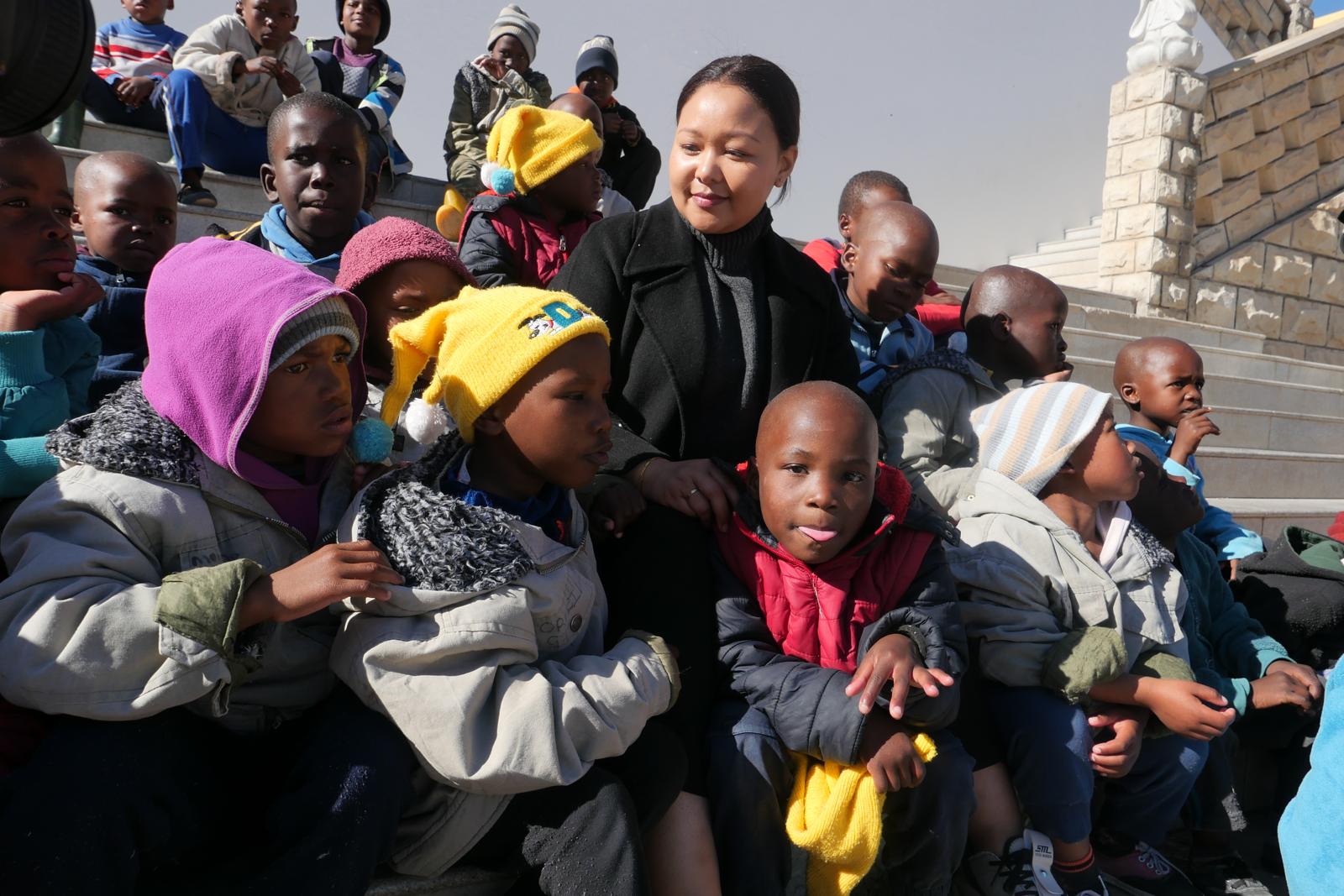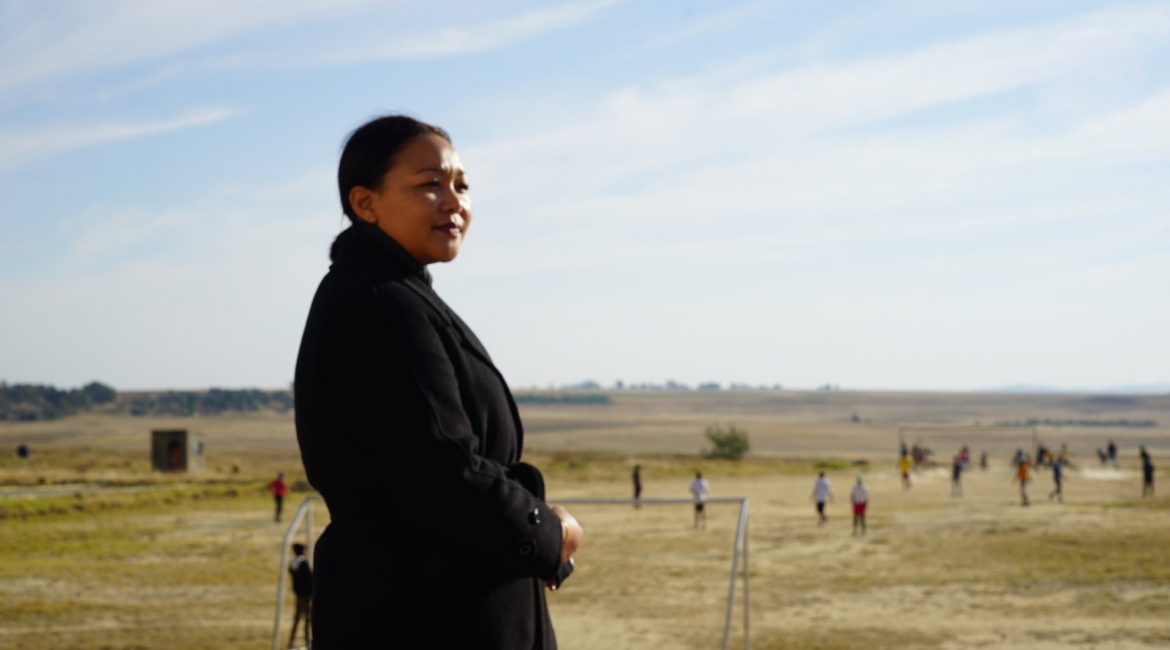During my stay on the Lesotho campus of Amitofo Care Centre (ACC), I spoke to its director, Ms. Pearl Wu, about her work with the ACC children and the broader, long-term goals of the organization in her country. Of mixed heritage (her mother is Mosotho and her father is Chinese), Pearl has formally been in her position for 4 years and spoke about her father’s bond with Ven. Hui Li, founder of ACC. Her father, a businessman, donated the plot of land that became ACC Lesotho. As she grew closer with Ven. Hui Li, she became, almost by accident, an important contributor to ACC’s transnational strategy.
Her work encompasses interfacing with fellow ACC directors and external parties, including the Lesotho government, managing tensions and difficulties among the local staff, and, of course, ensuring the smooth running of the dormitories and the schools.
Our interview was shot using several cameras with the ACC team, and will be part of Buddhistdoor Global’s “Rhythm of Liberation,” our documentary project about how African countries and communities are making Buddhism their own. In the meantime, here are some key takeaways:
In the first year of her tenure, she encountered a degree of backlash from aspects of Basotho society, and currently treads a challenging but fulfilling path of correcting cultural misunderstandings about ACC in Lesotho.
Pearl introduces Buddhism as a way of life that helps people grow into more mature personalities. She maintains that interest in Buddhism is growing in Lesotho. A recent Dharma talk by a monk was attended by hundreds of people, with audience enquiries about opportunities to learn more about Buddhist philosophy.
One institution she takes great pride in is the Yuan-Tong school, the high school on campus, which shot up to number 8 in the national rankings for exams this year. While there were celebrations, Yuan-Tong was not invited to send a representative.
“We are still seen as outsiders, even though our staff are overwhelmingly Basotho,” she told BDG. She says that there are various hypocrisies and prejudices, including towards the social class of orphans, that hinder a better appreciation of the difference that ACC is making.
She says that cultural misunderstandings can be resolved through greater Sino-Basotho cultural dialogue: Chinese communities, including the business world, also need to reach out, behave more inclusively, and reduce insularity to reduce suspicion and resentment in the Basotho-majority society.

Pearl remains a deep admirer of Ven. Hui Li and the philosophy of Buddhism. To appreciate diversity and embrace an inclusive worldview are, for her, fundamental Buddhist values. Her greater ambition is to catapult Yuan-Tong into the highest tier of Lesotho’s high school institutions, and in doing so demonstrate how Buddhism is already entwined with the country and its people’s progress and prosperity.
Related blog posts from BDG
Rhythm of Liberation: Amitofo Care Centre’s Lesotho Campus
Making Buddhism African: A Generational Diffusion


